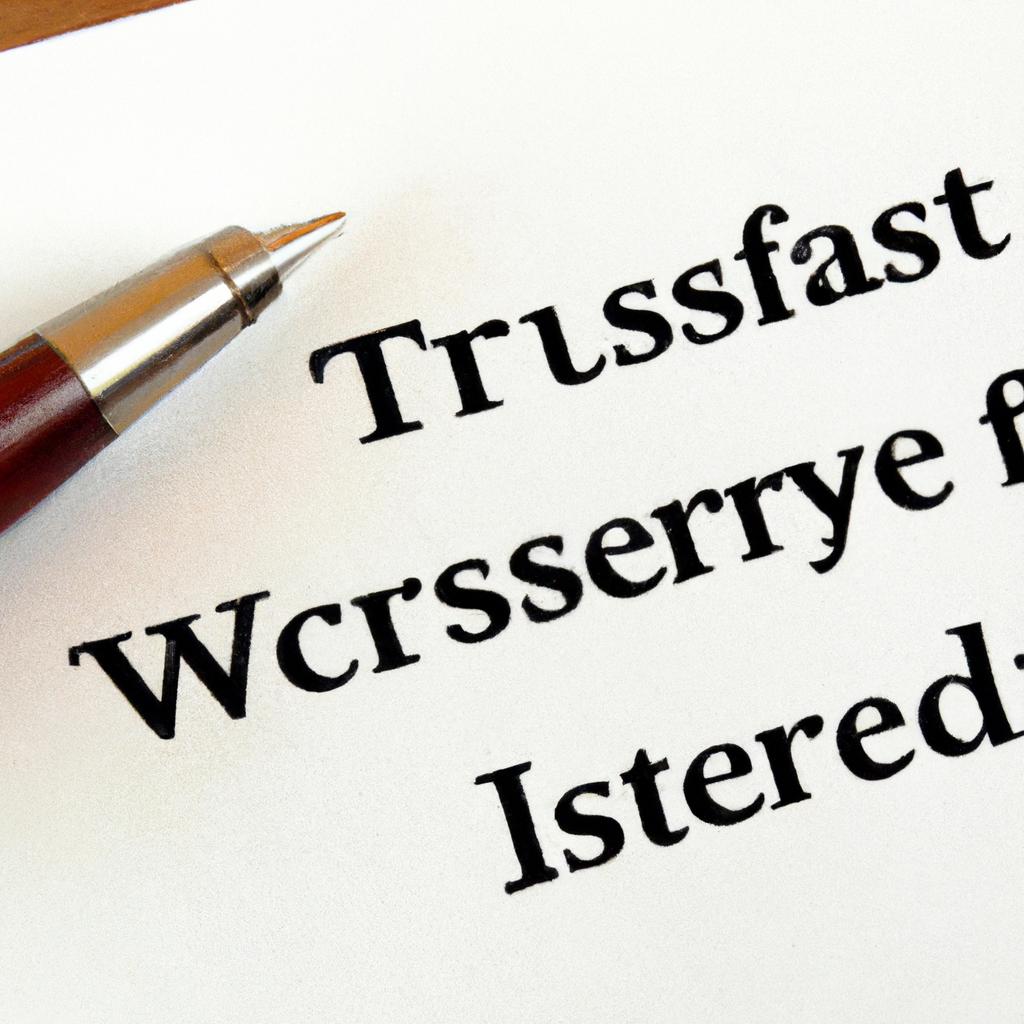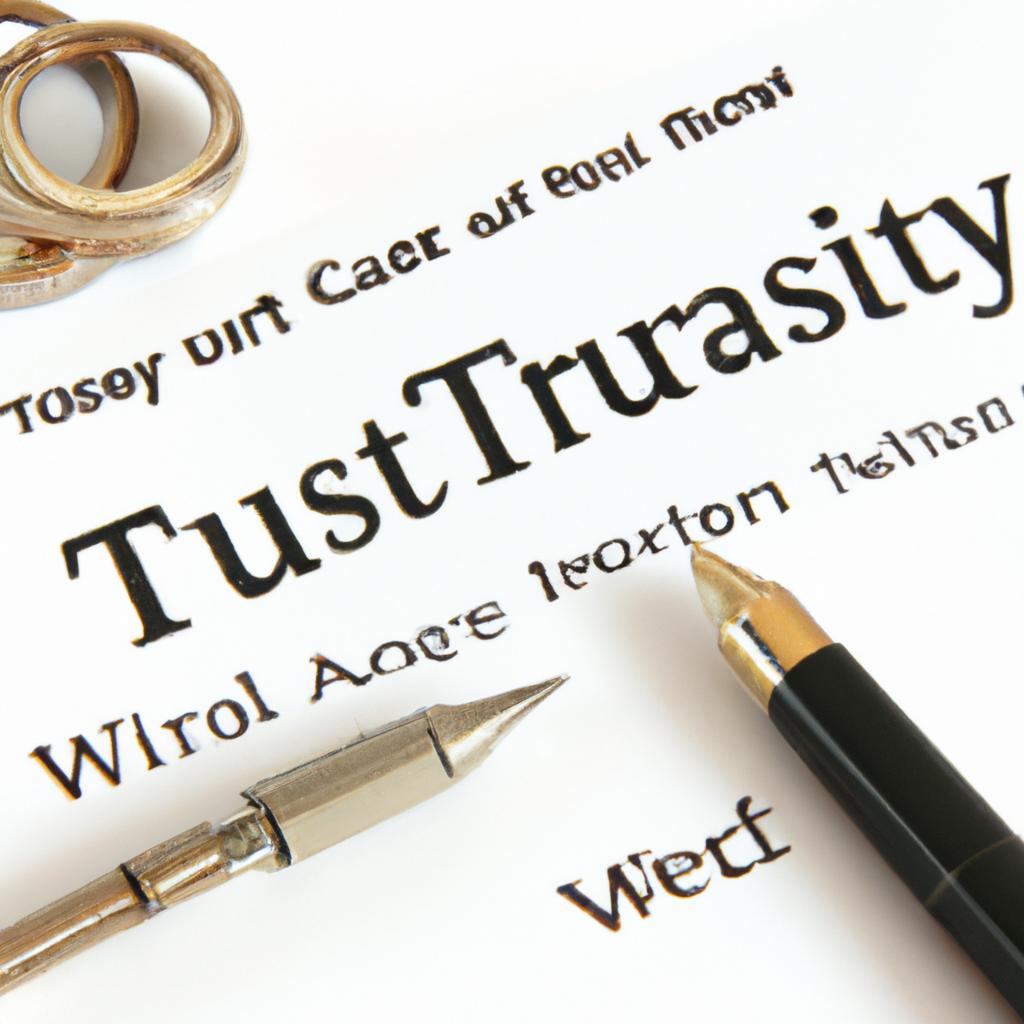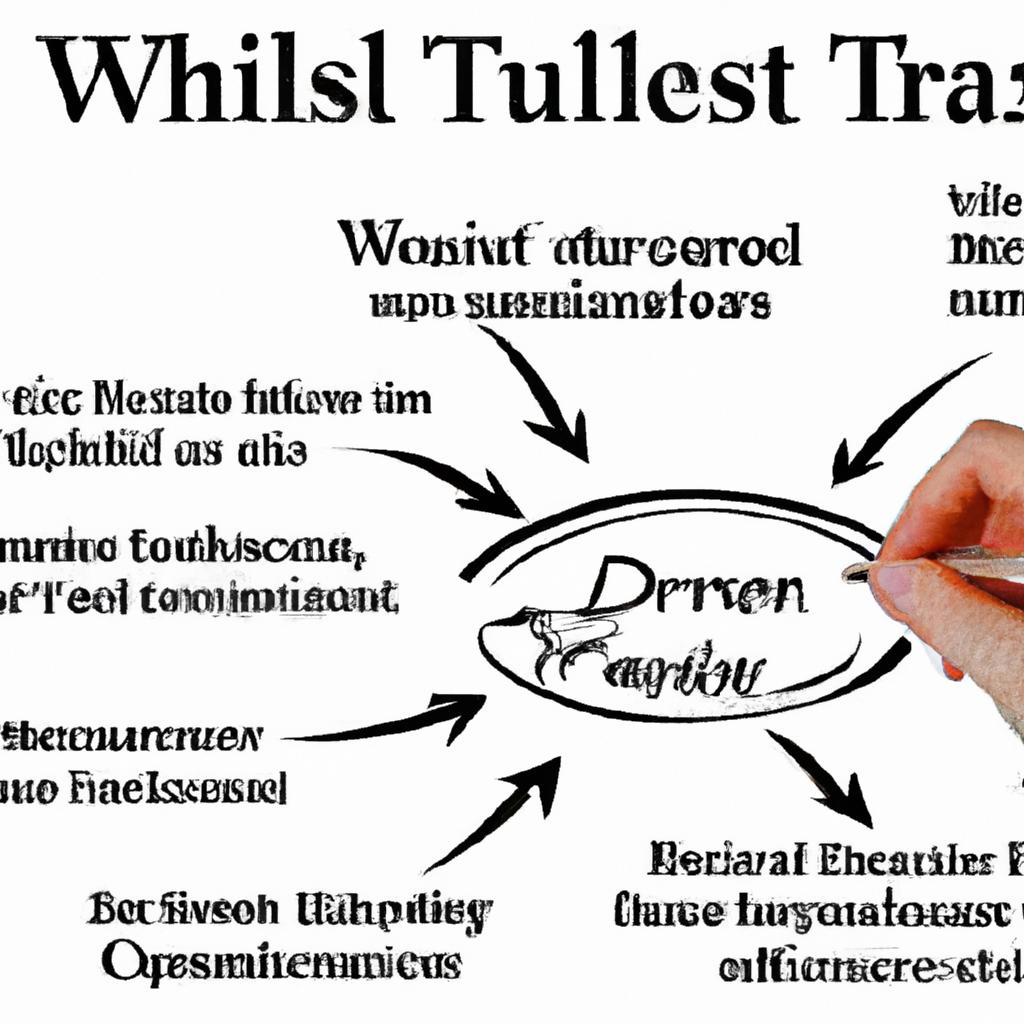In the intricate web of estate planning and asset protection, there exists a fundamental concept that serves as the backbone of all successful legal documents and agreements: trust. At Morgan Legal Group, located in the bustling metropolis of New York City, we specialize in navigating the complex terrain of Wills and trusts to ensure our clients’ assets are safeguarded and distributed according to their wishes. Within this realm, the notion of a “trust will” holds a paramount significance, offering a unique blend of security and flexibility that transcends conventional legal frameworks. In this article, we delve into the nuanced intricacies of trust wills, unraveling their profound implications and unveiling their transformative potential in the realm of estate planning.
Understanding the Importance of Creating a Trust Will
Creating a trust will is a critical component of any estate planning strategy. Trust wills offer several key benefits that can help ensure your assets are distributed according to your wishes after you pass away. One of the main advantages of creating a trust will is that it allows you to avoid the often lengthy and costly probate process. By transferring your assets into a trust, you can designate beneficiaries who will receive those assets directly, bypassing the need for probate.
Additionally, trust wills provide a greater level of privacy compared to traditional wills. Since trusts do not go through probate, the details of your estate and beneficiaries can remain confidential. This can help prevent any potential disputes or challenges to your will. By working with an experienced estate planning attorney, you can create a trust will that meets your specific needs and provides peace of mind knowing that your wishes will be carried out.

Key Components to Include in a Trust Will
When creating a trust will, ensuring all key components are included is essential to properly safeguard your assets and ensure your wishes are carried out. Below are some key components that should be included in every trust will:
- Trustee: Designate a trustee who will be responsible for managing the trust and distributing assets according to your instructions.
- Beneficiaries: Clearly outline who the beneficiaries of the trust will be and specify how assets should be distributed to them.
- Asset Inventory: Provide a detailed inventory of all assets that will be included in the trust, including real estate, investments, and personal property.
- Successor Trustee: Name a successor trustee who will take over the management of the trust in the event that the original trustee is unable to fulfill their duties.
| Component | Description |
|---|---|
| Trustee | The individual or entity responsible for managing the trust and distributing assets. |
| Beneficiaries | The individuals or organizations who will receive assets from the trust. |

Benefits of Establishing a Trust Will
Establishing a trust will can provide numerous benefits and advantages to individuals looking to protect their assets and ensure their wishes are carried out after their passing. One of the main benefits of a trust will is the ability to avoid probate, which can be a lengthy and costly process. By placing assets in a trust, they can pass directly to beneficiaries without the need for court intervention. This can help the beneficiaries receive their inheritance more quickly and with less hassle.
Another benefit of establishing a trust will is the ability to maintain privacy. Unlike a will, which becomes a public record upon probate, a trust will allows assets to be distributed privately and without the need for court oversight. This can help protect the privacy of the individuals involved and prevent sensitive information from becoming public knowledge. Additionally, a trust will can also provide flexibility in how assets are distributed, allowing individuals to specify conditions and requirements for beneficiaries to meet before receiving their inheritance.

Expert Recommendations for Drafting a Trust Will
When it comes to drafting a trust will, it is vital to seek expert recommendations to ensure that your wishes are carried out effectively. Trust wills are complex legal documents that require careful consideration and precise language to avoid any misunderstanding or disputes among beneficiaries. Here are some expert recommendations to keep in mind:
- Consult with a Trusts and Estates Attorney: It is highly recommended to seek guidance from a trusts and estates attorney who specializes in drafting trust wills. They can provide valuable insight and expertise to help you navigate the complexities of estate planning.
- Clearly Define Your Intentions: Be specific in outlining your intentions and wishes in the trust will. Clearly define who you want to be the beneficiaries, what assets you want to include in the trust, and any specific instructions for how the trust should be managed.
- Consider a Professional Trustee: If you feel that your beneficiaries may not have the knowledge or experience to manage the trust, consider appointing a professional trustee to oversee the administration of the trust.
Q&A
Q: What is a “trust will”?
A: A trust will is a legal document that combines the benefits of a traditional will and a trust, allowing for the distribution of assets in a more efficient and controlled manner.
Q: How does a trust will differ from a regular will?
A: While a regular will dictates the distribution of assets upon the testator’s death, a trust will allows for the management of assets during the testator’s lifetime and the smooth transfer of assets to beneficiaries after death.
Q: What are the benefits of having a trust will?
A: A trust will can provide for the management of assets in the event of incapacity, avoid probate, offer privacy, provide for minor children or beneficiaries with special needs, and potentially minimize estate taxes.
Q: Who can benefit from having a trust will?
A: Individuals or families with significant assets, complex family dynamics, concerns about privacy, charitable intentions, minor children, or beneficiaries with special needs may benefit from having a trust will.
Q: How can one create a trust will?
A: Creating a trust will typically involves working with an experienced attorney who specializes in estate planning to draft a customized document that reflects the testator’s wishes and goals.
Q: Are there any potential downsides to having a trust will?
A: While there are many benefits to having a trust will, it is important to consider the legal and administrative costs associated with setting up and maintaining the trust, as well as the potential loss of some control over assets during the testator’s lifetime.
Final Thoughts
In a world where trust can often feel like a fragile commodity, cultivating a strong will grounded in trust can be a powerful tool for navigating life’s uncertainties. By embracing a mindset that believes in the inherent goodness of others and the potential for positive outcomes, we can approach challenges with resilience and optimism. So, as you go forth in your journey, remember to nurture your trust will and watch as it blossoms into a force that propels you towards success and fulfillment. Stay true, stay trusting, and watch as the world opens up to endless possibilities.

